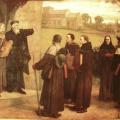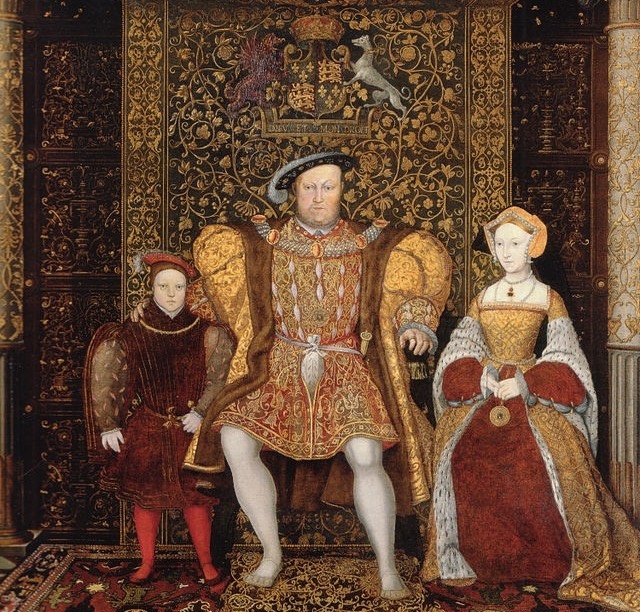416. God’s is the Quarrel: the English Reformation
The historical context of English philosophy in the sixteenth century, with particular focus on Thomas Cranmer, and the role of religion in personal conscience and social cohesion.
Themes:
---
• P. Collinson, The Elizabethan Puritan Movement (London: 1967).
• P. Lake, Anglicans and Puritans? Presbyterianism and English Conformist Thought from Whitgift to Hooker (London: 1988).
• D. MacCullough, Thomas Cranmer (New Haven: 1996).
• B. R. White, The English Separatist Tradition (Oxford: 1971).
• R.S. Werrell, The Roots of William Tyndale’s Theology (Cambridge: 2013).
• A. Wood, Faith, Hope and Charity: English Neighborhoods 1500-1640 (Cambridge: 2020).
• D.F. Wright, Martin Bucer: Reforming Church and Community (Cambridge: 1994).






Comments
The Bunny pun was the most…
The Bunny pun was the most hilarious I've heard in 400 episodes!
In reply to The Bunny pun was the most… by Richard Marshall
Hare-raising humor
Thanks! I like that one too but it isn't even my favorite in this episode: the one at the start about the candles really made me laugh when I thought of it.
This episode dealt with the…
This episode dealt with the ideas in a very balanced way. However, there were several major events which were not mentioned - the Dissolution of the Monasteries being a significant upheaval in England, and one which was done with magnificent cruelty.
After Elizabeth Tudor usurped the throne, she instituted a police state the likes of which would only be seen again under Josef Vissarionovich Stalin and later. One has to question her claimed tolerance when she had a henchman like Richard Topcliffe as her chief enforcer and head of the secret service. A very good source for the political climate is found in: R. J. Stove, The Unsleeping Eye: Secret Police and Their Victims (Encounter Books, San Francisco, 2003).
There were penal laws for not attending church services, and priests being hung, drawn and quartered for being found. These sorts of thing put a damper on Philosophical debates. The tensions in society caused by the suppression of debate would eventually explode in the English Civil War half a century after Elizabeth's death.
Look Ahead Inverviews
It looks like for the German you had an interview that talked about the links between reformation era and Leibniz, and French had an interview linking the skepticism to Descartes. You planning on doing this for the English as well (to Bacon or Hobbes probably), and/or an interview touching on the link between Suarez and Descartes?
In reply to Look Ahead Inverviews by Alexander Johnson
Look ahead interviews
Yes I actually have already recorded an interview with Tom Pink on Suarez in which Prof Pink compares his views to those of Hobbes. In general I do like to invite the guests when discussing this period to glance ahead to the more famous developments of the 17th century. Not sure if that will happen in interviews in this British series but I'll look out for opportunities to do so.
Queen's (or King's English)
Spent time trying to find Andy Wood's novel by repeatedly searching without the "u" in Neighbourhoods. I felt very silly after I realized it, but it gave me a laugh. I "hope" it gives you a smile. Thanks as always for the great suggestions. Speaking of Prof. Pink, his book on Self-determinism was tremendous and I eagerly await the follow-on volume promised. One of the more difficult books that I've read, but incredibly interesting!
Shakespeare and the Tudor takeover of religion
I recommend Clair Asquith’s books on Henry VIII’s take over of the English church and the English Reformation and Elizabeth I’s further take over of the English churches. Asquith also has an interesting lecture presented in the Shakespeare authorship society channel in YouTube, which lecture relates Shakespeare’s poems “Venus and Adonis” and “Lucrece” to the destruction of the traditional English church and its effects on English society.
Add new comment